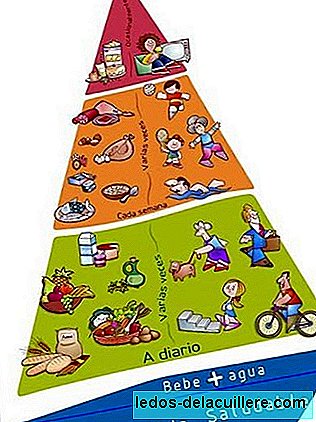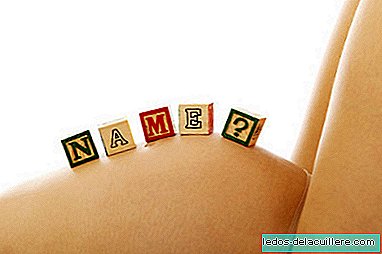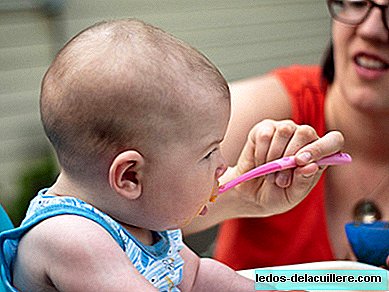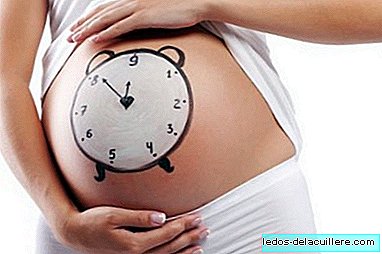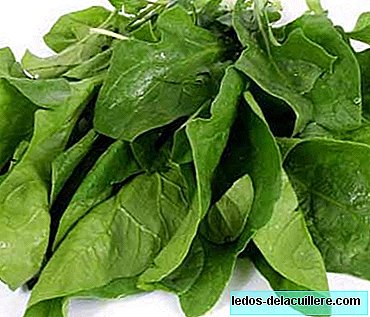
A balanced diet rich in all kinds of nutrients is one of the essential keys to a healthy pregnancy, in addition to exercise.
In our Special Pregnancy we have been presenting the most suitable foods for the pregnant woman's diet. We have talked about those rich in omega-3, fiber and calcium and now we will talk about iron rich foods.
In pregnancy, the woman needs a higher dose of iron than she normally requires. Iron is necessary for the production of hemoglobin in the red cells of the maternal and fetal blood, a protein responsible for carrying oxygen from the lungs to the rest of the body's cells.
Due to the increase in the volume of blood that occurs in women during pregnancy, it is essential that they have iron reserves in their body to guarantee the necessary oxygen supply for the baby. The baby depends on the blood of his mother and the iron she consumes to produce red blood cells, and it is from the second trimester when it requires more.
It is common for the pregnant woman to have a mild deficiency of iron in the body. Iron deficiency anemia is the most common of all anemias and its cause is mainly due to the need to increase iron intake, which is why the gynecologist usually indicates a supplement of this mineral after performing a blood test to check it.
The recommended dose of iron in pregnancy is 30 mg daily, that is, more than 30% of the usually indicated dose.
Anemia in untreated pregnancy increases the risk of premature delivery, fetal deficiencies, low birth weight and even postpartum maternal mortality in the most pronounced cases.

The symptoms of an anemia are fatigue, due to lack of oxygen, drowsiness and tiredness, but those are very common symptoms in a pregnancy, so an analysis is the best thing to know. Paleness, tachycardia, shortness of breath and less power of concentration are also common, but in many cases the symptoms are not detected or are confused as typical of pregnancy.
In vegetarian women it is important to ensure that a good amount of iron is included in your diet, since vegetable iron is not readily absorbed. A good source of iron can be found in whole grains, legumes, dark green vegetables such as spinach or chard and dehydrated fruits.
Foods with main sources of iron are:
● Fish and seafood: mussels, clams, cockles, oysters, sardines, anchovies, squid, octopus, monkfish, crayfish, prawns, shrimp, scallops, whiting, sea bass.
● Legumes and cereals: chickpeas, lentils, beans, beans, beans, peas, cookies, brown rice and whole wheat bread and soybeans. Breakfast cereals are an excellent option, there are some that contain added iron.
● Vegetables, vegetables and fruits: spinach, chard, escarole, garlic, broccoli, parsley, cabbage, artichokes, beets, radishes, leeks and strawberries.
● meats: ox, horse, pig, lamb, rabbit, duck, chicken, turkey, veal and liver, especially beef and lamb. Also sausages, salchicas, quail and partridge.
● Dairy products: eggs, yogurt, milk and cheese.
● Nuts: almonds, pistachios, pipes, hazelnuts, nuts, pine nuts, as well as dried fruits such as plums and dates.
For its part, foods rich in vitamin C help the iron in food to be better absorbed, while tea and coffee are drinks that block the absorption of this mineral, so it is recommended to avoid them one hour before and one hour after meals.
Those who have been pregnant and have ingested the iron supplement will have noticed that it usually causes constipation (here is how to relieve it) and a dark coloration in bowel movements, in some cases even intolerance and nausea.
Whenever it does not produce rejection, the ideal is to take it on an empty stomach accompanied by a drink rich in vitamin C as an orange juice, for example, to facilitate its absorption.


